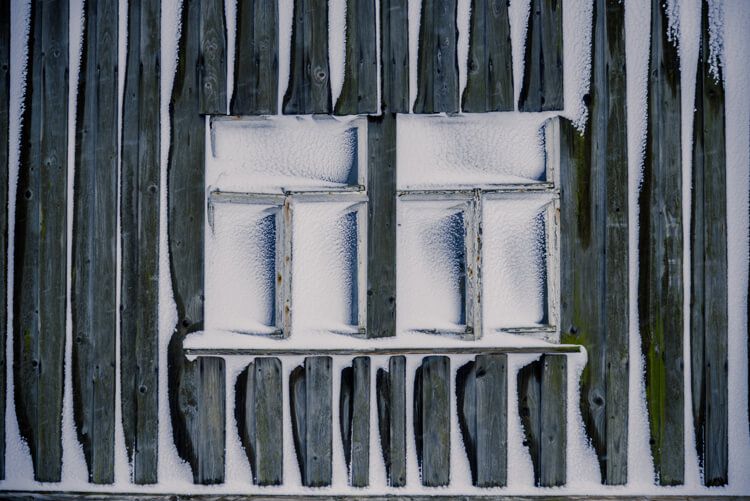Mold in the Winter
As the cool weather blows in and we pack up our bathing suits until next year, our minds tend to turn to snowball fights and Christmas trees. Winter is a great season where we enjoy family and friends, hot cocoa and mold. Wait? Mold?!?
The cold, wet months of winter are some of the most opportunistic times for mold growth. Luckily there are some steps you can take in advance to prevent mold growth in your home throughout the winter season.
What Causes Mold Growth in Cold Weather
Mold may be the last thing on your mind when the weather starts to cool off, but the colder climate during the winter months in many cases increases the likelihood of mold growth. The things we do naturally during winter can actually create conditions for mold to thrive and grow –oftentimes without us even knowing. Here are a few examples of what causes mold to grow in the cold weather.
- Cranking up the Heat – When it gets cold outside, we turn up our thermostats to stay warm. With all of the advancements in technology, that typically means our homes are sealed up pretty tight. When the warm air is unable to escape your home, the condensation and trapped moisture from high humidity levels sticks around and creates a great environment for mold. Differences in relative humidity throughout your home can also create prime conditions for mold growth (for example – in corner rooms or in bends throughout your house).
- Falling Leaves – The trees shed their leaves as the temperatures start to drop, and dead plant matter is a warm, welcoming place for mold growth. The mold that grows on the decaying plant matter can easily be released into the air.
- Wet Boots – There is a lot of rain and snow during the winter months, which translates into a lot of wet boots coming into and out of the house. If moisture from wet shoes and clothes isn’t cleaned and is allowed to accumulate, mold can quickly take hold.
These are just a few examples explaining why mold is so common during the winter. There are plenty of things we can do to prevent mold growth as well as clean and remove it once it is there.
Prevent Mold Growth in the Winter
Mold spores are tiny, and once they are in our homes can compromise our health. While mold can be killed and removed, the best bet is to prevent mold growth from starting in the first place. Prevention is the best solution when it comes to keeping your homes and family safe. Here is a list of things you can do today and throughout the winter months to prevent mold growth and keep associated health issues at bay.
- Keep humidity monitored. Mold will grow easily when the relative humidity is greater than 70%. Both the humidity level and the temperature of the rooms in your house need to be monitored. You don’t want to keep your house to moist or too cool throughout the winter. If you can keep the temperatures balanced between the different rooms throughout your home, you can easily prevent mold growth. There are many different options to balance and monitor conditions in your home so check out your local hardware store or search online.
- Make sure there is a good circulation maintained in your home. Use fans or even open a window when the weather allows – especially when showering, washing dishes or any time moisture is brought into the home.
- Inspect your basement for moisture. If you find moisture, perform an inspection of your drainage system. Repair any broken appliances or pipes and replace any mortar that looks cracked or defective.
- When the temperatures drop below freezing, prevent mold growth by insulating pipes both inside and outside. By doing this, you can prevent breaks and cracks which can allow moisture in once the temperatures return.
- If you notice condensation on pipes, walls or windows, act quickly. Dry out the area and determine if there is a leak or if the condensation was created from humidity. Rectify the situation and continue to monitor for additional moisture in the following days and weeks.
- Check all of the seals around your windows and doors. Replace any that appear to be compromised or damaged. This is an easy and effective way to prevent mold growth and should be performed periodically.
- Keep the leaves and other decaying debris cleaned up in your yard – especially around your home. Don’t allow wet leaves or grass clippings to accumulate and sit in your yard. Remove them often until all of the leaves have fallen for the season.
- Dust and clean regularly throughout the entire winter months as mold loves dusty surfaces. Be sure to pay extra attention to the entry ways or areas where muddy and wet boots are taken off in the home.
The key to prevent mold growth is to keep everything as clean and dry as possible. You can do this through maintenance of your home and temperature control.
If you do notice mold growth, take the necessary steps to kill, clean and remove the mold as well as repair or remediate the cause of the mold growth. Because mold is such a serious condition, you may want to call in a professional mold remediation team to inspect and remove the mold from your home. It may not look bad from the outside, but mold can be sneaky. It is often much worse than what you can see. By the time you notice mold growth, it may already be in your walls and in the air you and your family are breathing.
Conclusion
There are so many great things that we love about the winter: holidays, vacation, fires and hot chocolate. But winter also comes with a few downfalls including freezing temperatures, wet boots, icy roads and increased potential for mold growth in your home. Winterizing your home and taking the necessary steps to prevent mold growth during the cold months will keep you happy, healthy and enjoying your time with family in your home.


